Primary Education
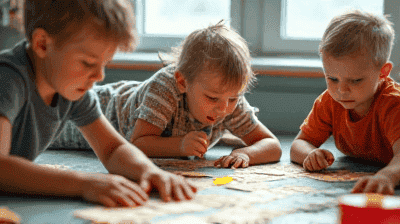
The Importance of Play in Primary Education: How Structured Play Enhances Learning
Play is an integral part of childhood, and its significance in primary education cannot be overstated. Research shows that play, especially structured play, plays a vital role in a child's development and learning process. It promotes cognitive, social, emotional, and physical growth, making it a fundamental element of effective primary education. This article explores the importance of play in primary education, examines the various ways structured play enhances learning, and offers practical strategies fo
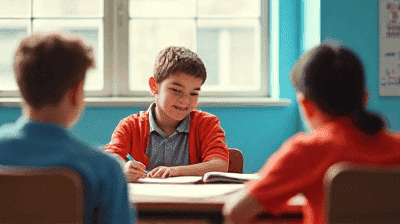
Creating Inclusive Classrooms: Strategies for Supporting Students with Diverse Learning Needs
In today’s diverse educational landscape, creating inclusive classrooms has become a vital priority for educators. An inclusive classroom is one where all students, regardless of their diverse learning needs, can thrive academically, socially, and emotionally. This article explores practical strategies for supporting students with various learning needs, providing educators with insights into fostering an inclusive learning environment.

Engaging Parents in Primary Education: Strategies for Building Strong Home-School Partnerships
Effective education is not just the responsibility of schools; it is a collaborative effort that involves educators, students, and families. Building strong partnerships with parents in primary education can greatly enhance the learning experience and contribute to the overall development of children. When schools engage parents in meaningful ways, it can lead to improved academic performance, social skills, and emotional well-being in students. This article highlights the importance of parent engagement in
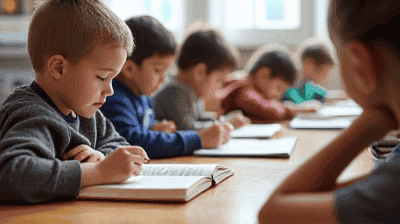
Building Strong Foundations: The Role of Phonics in Primary Literacy Development
In today's rapidly evolving educational landscape, ensuring young learners develop strong literacy skills is more important than ever. Literacy serves as the cornerstone for academic success and lifelong learning, influencing not only reading and writing abilities but also critical thinking and comprehension skills. A key component of effective literacy instruction in primary education is phonics—a method that emphasizes the relationship between sounds and letters. This article explores the fundamental role
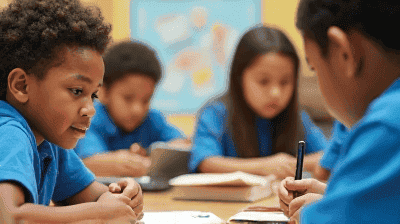
Effective Strategies for Teaching Reading in Primary Classrooms: Tips for New Educators
Teaching reading in primary classrooms is one of the most significant responsibilities of educators. Reading is the cornerstone of literacy and a foundational skill that shapes a child's academic journey. For new educators, developing effective strategies for teaching reading can be both exciting and challenging. This article will provide practical tips, insights, and research-backed strategies to help new educators create a nurturing and effective reading environment in their primary classrooms.
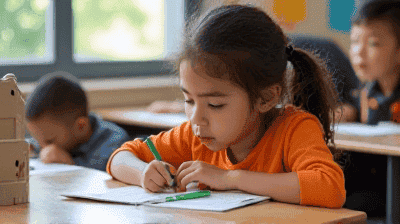
Differentiated Instruction in Primary Education: Meeting the Needs of Every Learner
In today’s diverse and inclusive classrooms, educators face the significant challenge of meeting the varied needs of their students. Differentiated instruction has emerged as an effective approach to address the unique learning styles, abilities, and interests of each child. This article explores the concept of differentiated instruction in primary education, its importance, practical strategies for implementation, and its positive impact on student outcomes.
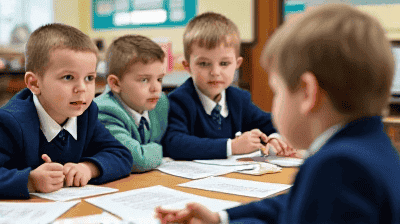
Teaching Morals and Values in Primary Schools: The Importance of Character Education
In today’s rapidly changing world, the role of education extends beyond academics. Primary schools have a unique opportunity to shape not only the minds of young learners but also their hearts and values. Character education, which emphasizes teaching morals and values, is essential for nurturing well-rounded individuals who can navigate social complexities, foster positive relationships, and contribute meaningfully to society. This blog post explores the significance of character education, its benefits, e

Fostering Emotional Intelligence in Primary Education: Techniques for Educators
Emotional intelligence is increasingly recognized as a vital component of children's overall development. It refers to the ability to recognize, understand, and manage one's own emotions while also being able to empathize with others. In primary education, fostering emotional intelligence is essential for creating a positive learning environment, improving social interactions, and enhancing academic success. This article explores the importance of emotional intelligence in primary education and provides act

Mindfulness and Well-Being in Primary Education: Techniques for Reducing Stress in the Classroom
In today's fast-paced educational landscape, the mental well-being of students is of paramount importance. The stresses of academic pressure, social dynamics, and personal challenges can weigh heavily on young learners. Mindfulness has emerged as a valuable approach to promoting well-being in primary education. By integrating mindfulness techniques into the classroom, educators can help students reduce stress, enhance focus, and cultivate a positive learning environment. This article explores the benefits o
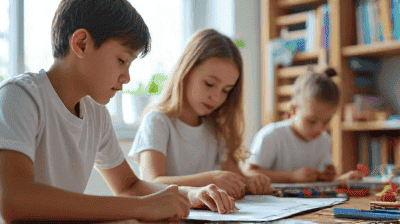
Developing Critical Thinking Skills in Young Learners: Practical Activities for Primary Classrooms
In an ever-changing world filled with information and challenges, the ability to think critically is essential for young learners. Critical thinking skills help students analyze information, solve problems, and make informed decisions in their everyday lives. As educators, developing these skills in primary classrooms is crucial for fostering independent thinkers who can navigate the complexities of the modern world. This article explores the importance of critical thinking in education, outlines effective
